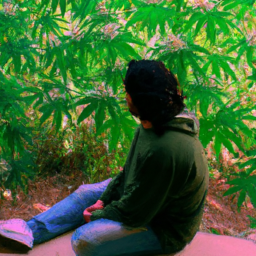What is the law? Medical marijuana has been legal in Thailand since 2018, but decriminalization in 2022 took things a step further, making it no longer a criminal offense to possess cannabis for personal use. With the evolving legal landscape surrounding cannabis, it is crucial to delve into the effects of marijuana, including the controversial topic of weed hangovers.
The strain of cannabis you choose depends largely on the hangover symptoms you want to tackle. For instance, Sativa options are ideal if you wish to combat fatigue and brain fog, while Indica strain may help alleviate headaches and nausea. Understanding the different strain and their effects can aid in tailoring your cannabis consumption to minimize potential hangover symptoms.
Reported symptoms of a weed hangover include brain fog, headache, fatigue, nausea, and dry eyes. Since the aforementioned studies did not provide concrete evidence of a weed hangover, it is essential to approach this topic with caution and skepticism. More research is needed to validate the existence and severity of weed hangovers.
The team found teens who used cannabis heavily reported more depression, even if they didn't also drink heavily. They concluded cannabis use may contribute to depressive symptoms, highlighting the importance of responsible consumption and monitoring the potential mental health impacts of cannabis.
Some research, though very little, does suggest that cannabis consumers could wake up still feeling high or impaired. However, it is crucial to differentiate between residual effects and an actual hangover. Residual effects occur due to the prolonged presence of cannabinoids in the body, while a hangover refers to specific symptoms experienced after the initial high wears off.
Weed and alcohol are two of the most commonly used substances, but is one better for you than the other? It is essential to consider individual preferences, health conditions, and potential risks before making any comparisons. Each substance has its unique effects and potential drawbacks, and personal factors play a significant role in determining which is better suited for an individual.
Although there is not much scientific evidence proving the existence of the marijuana hangover, anyone who has ever had an overly ambitious cannabis session can attest to its potential effects. It is important to listen to personal experiences while acknowledging the need for more scientific research to provide a comprehensive understanding of weed hangovers.
What can you do about it? Treating a weed hangover is a lot like treating a normal one, it turns out. Your first priority is going to be getting plenty of rest and hydration. Additionally, consuming a nutritious meal, engaging in light physical activity, and avoiding further cannabis consumption can help alleviate hangover symptoms.
You can experience the side effects of THC after its initial high wears off. After consuming an excessive amount of weed, cannabinoids may hang around in the body, leading to residual effects such as grogginess or feeling mentally foggy. Understanding these side effects and giving your body time to recover is crucial in managing weed hangovers.
In conclusion, the reality of weed hangovers remains a subject of debate and limited scientific research. While some individuals may experience symptoms akin to a hangover after cannabis consumption, it is essential to approach this phenomenon with caution and understand the potential factors contributing to these effects. Responsible consumption, strain selection, and adequate rest and hydration can all play a role in minimizing the likelihood and severity of weed hangovers.
